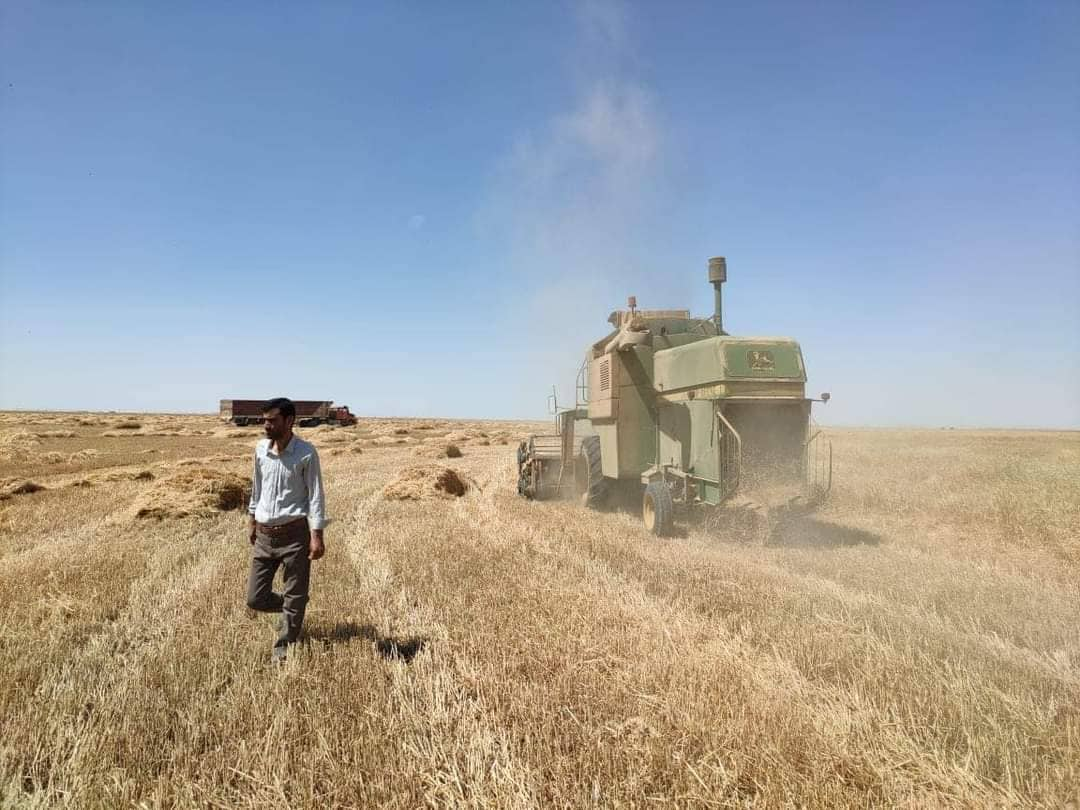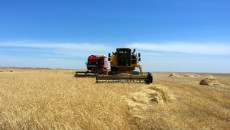The silos in Ninewa province, including the Sinjar silo, began the process of receiving wheat from farmers, and plan to pay 850,000 Iraqi dinars ($575) per ton, according to the instructions of the Iraqi Ministry of Commerce.
The seven silos of Ninewa, Iraq's largest wheat-producing province, including Shingal (Sinjar) silo received four trailers of wheat from farmers on Sunday, according to a silo employee who declined to be named.
"We will pay 850,000 dinars for each ton of wheat to farmers. This year, the ministry has told us to buy clean wheat at 850,000 dinars. If the quality is not very good, we will pay less," he said.
"From today, farmers can bring their wheat to any of the seven silos," he said.
We will pay 850,000 dinars to farmers for each ton of wheat
Shingal is home to more than 40,000 hectares of agricultural land and most of that area relies on rainwater, while the amount of rainfall in Iraq has decreased significantly for the last two years as water scarcity has become a challenge for several countries due to climate change.
Barakat Isa, director of the planting department in Sinuny sub-district of Shingal, said 900 hectares of land have been planted with wheat and they expect to produce 2,500 tons.
“Farmers are free to give their produce to the government or not, and they are free to put it in which of the seven silos in Sinjar,” Barakat said.
According to Isa, if the quality of wheat is very good, 850,000 IQD per ton will be given to farmers, if not very good, then 750,000 IQD.
"It is not yet known how much this year's crop, but some farmers had prepared for the drought and bought irrigation equipment and spraying crops, certainly this year's crop will not be like previous years may be better," he added.
Farmers are free to give their crops to the government or not
Khalid Qasim, a farmer in Gohbal community in Sinuny, said he is aware that the silo has started receiving farmers' produce, but he has not yet harvested his wheat and has not yet decided to give it to the Ministry of Commerce.
“I have planted 15 dunams of wheat this year. I will harvest in a few days and I will decide whether to take it to the silo or not because the wheat production in Sinjar is very low this year.”
Last year, 30,000 tons of wheat was produced in Shingal while in 2020 the district's production was 126,000 tons.
Rabi' Yousef Elias, director of agriculture in Ninewa, told Kirkuk Now in February that the Ministry of Agriculture pays special attention to Ninewa, as 60% of Iraq's wheat and barley production is produced in the province.
"We will support farmers in providing chemical fertilizers and facilities to transport their products to other provinces, as well as supporting them in providing irrigation equipment and technology," he said.
Iraqi farmers depend on the state in the production of grains, a policy criticized by experts as for years grains were stored in silos in vain and funds not allocated to pay farmers planning to sell their grains to traders and private silos as the demand is higher on wheat forllowing Russia invasion of Ukraine, Europe's food basket.
The Trade Ministry stores or buys produce from farmers and distributes it to mills in order to provide state-subsidized food rations and subsidized floor into markets as bread and rice make the main dish of the Iraqi cuisine.
The Agriculture Ministry supports farmers by providing harvesting tools, seeds, fertilizers and pesticides at a subsidized rate or for free while farms call for direct involvement of the state following scarcity of water, freqeutn waves of dust storms and unaffordable cost of other necesities.






